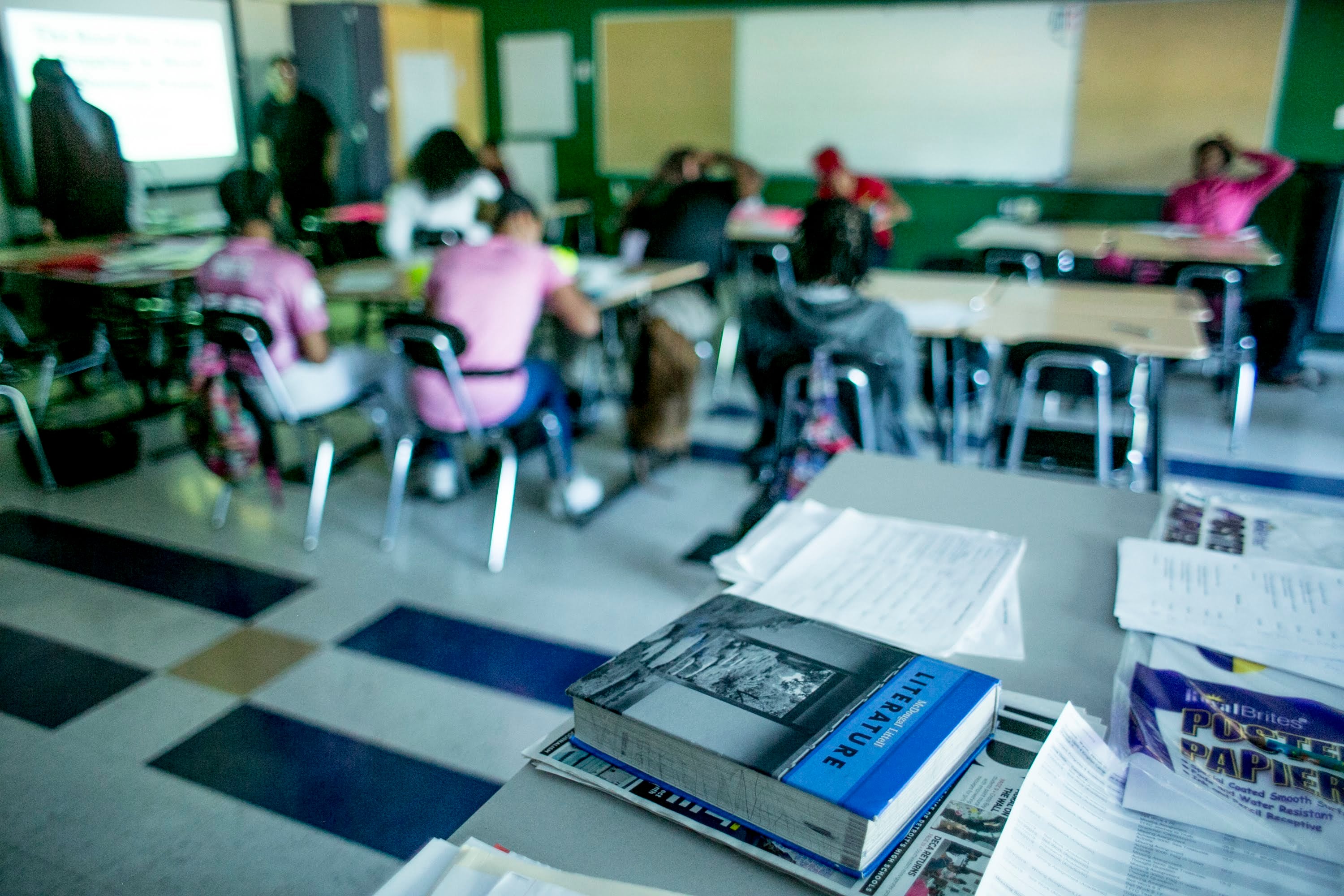Southeastern High School students will continue to get instruction online for the next month or so.
Heavy flooding during the winter break forced the building to close and instruction to shift online.
There had been some discussion about moving the roughly 600 Southeastern students to another building in the Detroit Public Schools Community District, such as Frederick Douglass Academy for Young Men. But Superintendent Nikolai Vitti told Detroit school board members during Tuesday’s monthly meeting that there was clear consensus from students, parents, and staff that online instruction could continue.
That feedback, coupled with the challenge of moving Southeastern students to an alternate site, influenced the decision to continue with remote learning.
The building is expected to reopen by mid-March or early April, Vitti added. The repair timeline is based on the extent of flood damage to the high school, as well as the availability of supplies needed to repair the building. Renovation work will continue into the summer, but classrooms will be usable before the school year ends.
The attendance rate has remained high, at about 90%, since the school pivoted to virtual learning on Jan. 12.
“Considering the possibility of hurting attendance and logistical changes, everyone thought it was best to stay online,” Vitti said. “I’m continuing to push for an earlier return” to Southeastern.”
In addition to giving the Southeastern update, the board renewed several contracts with curriculum providers at Tuesday’s meeting.
Board approves budget amendment
The board unanimously approved an amendment to this school year’s budget.
Typically, the board reviews and approves budget amendments after district leaders account for new revenue and expenses incurred since the budget was adopted in the previous fiscal year.
The district estimates a $79 million increase in revenue and a $44 million increase in expenditures.
Most of the additional revenue comes from an increase in state aid that was larger than what the district projected when the board adopted the budget in June. The district has also received more special-education revenue from the state and increased grant revenue.
The increased expenses include salaries and benefits, supplies, utility costs, and purchased services.
The budget amendment also accounts for an additional $287 million in federal COVID relief money that will go toward projects that are part of the district’s facility master plan.
Student representatives push for details on district’s post-COVID future
Student leaders on the board raised questions about the potential loss of vital school services funded with COVID relief dollars.
Student representatives Lauren Hatten, a senior at Cass Technical High School, and Amara Small, a junior at The School of Marygrove, were elected by members of the district’s Executive Youth Council and will serve for the remainder of the school year.
DPSCD received $1.3 billion of federal COVID relief aid through the Elementary and Secondary School Emergency Relief fund. Of that amount, the district has already earmarked $700 million for its facility master plan to repair and renovate school buildings.
The money has also gone toward contracting nurses, mental health support, tutoring and additional services such as after-school and summer school programming.
During Tuesday’s meeting, Vitti discussed the potential end of funding for after-school programs. The district has encouraged high schools to use their COVID dollars to hire teachers or vendors to work with students after school.
“What would have to be done to mitigate the fallout from that?” said Amara. “If we have to cut certain extracurriculars, that’s going to make it harder for students to be well rounded or competitive for college. If we have to cut mental health resources then that’s going to lead to students not being able to balance their mental health, especially students who can not afford or access things like a therapist outside of school.”
Lauren asked Vitti whether the district is mandating that funding be allocated for SAT/PSAT preparation.
Vitti said the district and board have already agreed on some services that need to be prioritized. Other services, he added, would have to be determined by the school board ahead of next year.
“After-school programs in general are something we have to take a closer look at,” Vitti said. “At some schools they are serving a high number of students, but at other schools … what are the costs? How many students are participating? Is the continued investment in those programs worth cutting other things?”
He added: “I don’t anticipate reducing mental health services as a district, at least from what I’ve heard from the school board. I think it should be a priority in the budget.”
Vittti told the board that while the district will see its COVID relief dollars tapering off next school year, “high schools should have enough dollars” through Title 1 funding to fund services such as after-school programs or SAT/PSAT preparation through their allocated school budget.
The board is set to hold a retreat on Feb. 18 to discuss its budget proposals for the 2023-24 school year, and weigh feedback from board members over what programs and services to keep or cut.
Ethan Bakuli is a reporter for Chalkbeat Detroit covering Detroit Public Schools Community District. Contact Ethan at ebakuli@chalkbeat.org.






